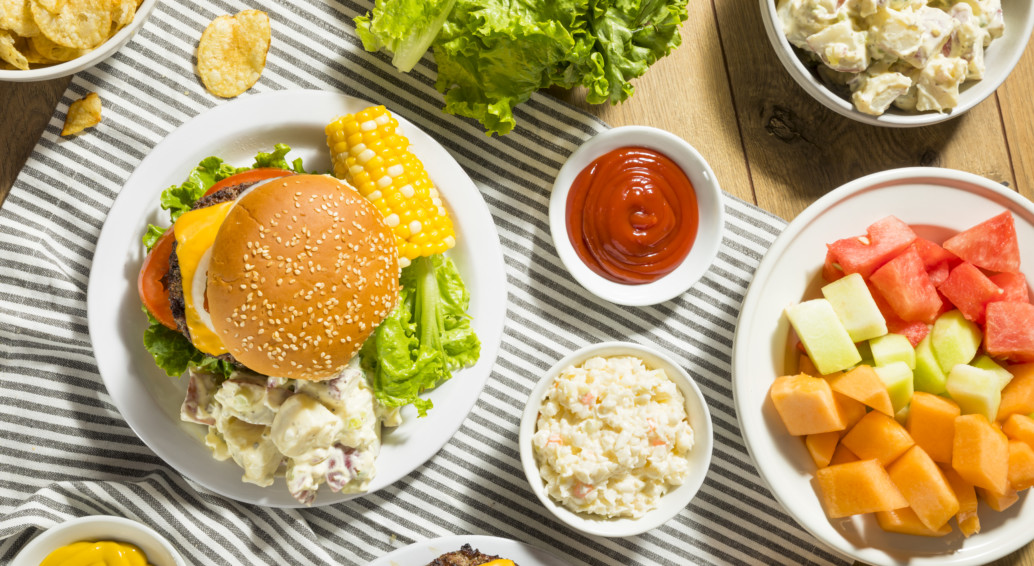Summer Food Safety

Don’t Make Summer a Bummer!
Summer picnics are lots of fun; don’t ruin the memory by coming down with food poisoning. Seventy-five to 80 million Americans will experience a few days of misery from foodborne illnesses this year, but for some, the consequences will be far worse. About 5,000 people die yearly from food poisoning, and others suffer serious complications. Protect yourself by following basic food safety practices.
Keep it clean
• Wash your hands before handling food and again after touching anything that may carry germs.
• Bring disposable moist towels on a picnic and use them often.
• Use clean dishes and utensils. Throw away plastic utensils after using them.
• Bring water from home. Use the water on site only if you know it’s drinkable.
• Insects spread germs, so keep food covered.
• Wash foods thoroughly. Melon rinds may carry salmonella, so wash them well before cutting.
Keep it hot
• Use a meat thermometer to accurately assure that burgers and chicken are done. Ground meat should be 160F while poultry should be 180F. If you don’t have a thermometer, make sure there is no pink in the middle.
• Don’t partially precook at home as this encourages the growth of bacteria.
• If possible, cook foods at the picnic site. If you bring hot foods, keep them wrapped in insulated containers and use them before they start to cool.
Chill out
• Cold foods should be cold when you leave the house. A cooler will not chill them properly.
• Pack a cooler with ice surrounding the food. Replenish the ice as it melts. Freeze single-serving juice containers and pack those around food instead of ice.
• The trunk of the car gets much hotter than outside temperatures. Keep the cooler in the air-conditioned interior while traveling and put it in the shade at the picnic site.
• Don’t bring home leftovers. The cooler will not chill them to a low enough temperature to be safe.
Don’t cross-contaminate
• Germs from one food can contaminate others. Use disposable utensils and dishes, and throw them out after a single use.
• Double-bag raw meat in sealed plastic bags and put the bags in a separate cooler or at the bottom of the cooler so juices can’t drip onto other foods. Clean the cooler well when you get home.
• Don’t put cooked meat on the same plate that held raw meat; use a clean knife to cut cooked meat. Don’t pour basting marinade overcooked meat.
When in doubt…
…throw it out! Never eat food unless you’re sure it’s safe. You can always rely on peanut butter sandwiches, crackers, salami, hard cheese, and other nonperishables when you picnic.
Food poisoning
Microorganisms that grow on food can attack your digestive tract or create harmful toxins. Young children, pregnant women, elderly people and those with compromised immune systems are most at risk. Symptoms usually appear from 4 to 48 hours after eating. Symptoms include nausea or vomiting, headache, fever, diarrhea, abdominal cramping and sometimes neurological problems such as double vision or paralysis. See your doctor if you suspect food poisoning.
For more information
• Centers for Disease Control and Prevention
• USDA Meat and Poultry Hotline 800-535-4555
Source: foodandhealth.com